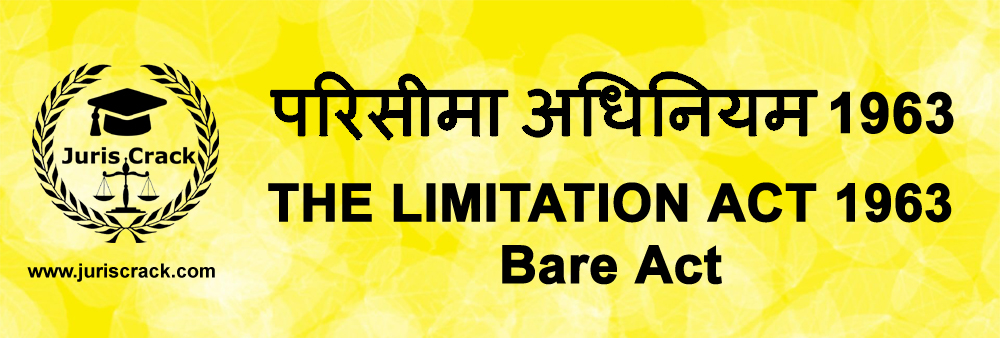In this Act, unless the context otherwise requires.
a. “applicant” includes
i. a petitioner;
ii. any person from or through whom an applicant derives his right to apply;
iii. any person whose estate is represented by the applicant as executor, administrator or other representative;
a. “application” includes a petitions;
b. “bill of exchange” includes a hundi and a cheque;
c. “bond” includes any instrument whereby a person obliges himself to pay money to another on condition that the obligation shall be void if a specified act is performed, or is not performed as the case may be;
d. “defendant” includes
1. any person from or through whom a defendant derives his liability to be sued;
2. any person whose estate is represented by the defendant as executor, administrator or other representative;
a. “easement” includes a right not arising from contract, by which one person is entitled to remove and appropriate for his own profit any part of the soil belonging to another or anything growing in, or attached to, or subsisting upon the land of another;
b. “foreign country'” means any country other than India;
c. “good faith” nothing shall be deemed to be done in good faith which is not done with due care and attention;
d. “plaintiff” includes
i. any person from or through whom a plaintiff derives his right to sue;
ii. any person whose estate is represented by the plaintiff as executor, administrator or other representative;
j.”period of limitation” means the period of limitation prescribed for any suit, appeal or application by the Schedule, and “prescribed period” means the period of limitation computed in accordance with the provisions of this Act;
k. “promissory-note” means any instrument whereby the maker engages absolutely to pay a specified sum of money to another at time therein limited, or on demand, or at sight;
l. “suit” does not include an appeal or an application;
m. “tort” means a civil wrong which is not exclusively the breach of a contract or the breach of trust;
n. “trustee” does not include a benamidar, a mortgagee remaining in possession after the mortgage has been satisfied, or a person in a wrongful possession without title.
Explanatory Video on Section – 2. Definitions
Notes on Section – 2. Definitions
Questions on Section – 2. Definitions
Juris Crack provide free law notes , free video lecture , relevant mock questions , past MCQ question and legal news on The Limitation Act 1963. One stop destination for llb students, judicial service examination preparation , civil judge preparation , law officer courses , apo preparation , clat ug and pg test preparation. We provide notes on all legal topics , past years questions and preparation strategy. Our Bilingual teaching materials help all law students to plan better for their examination. Juris Crack resource are mostly free to use and download, so that community of law students get quality materials. Become member of Juris Crack Law Community.
Section – 2. Definitions -. Bare Act of The Limitation Act 1963 on JurisCrack with Case Laws and Video lecture





No comment